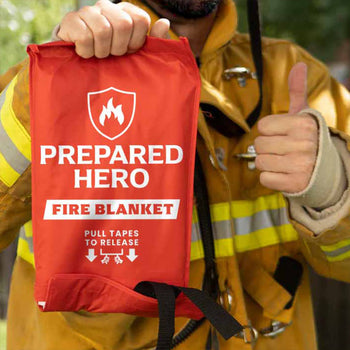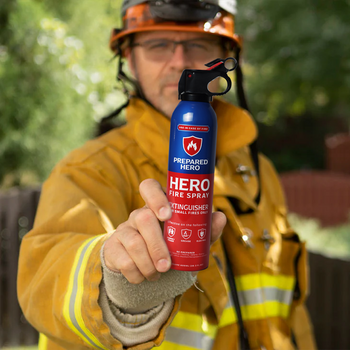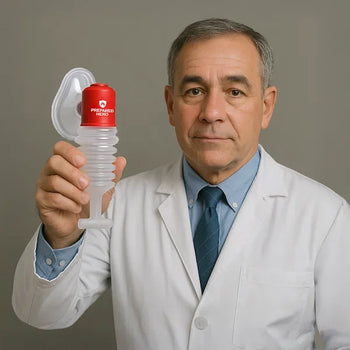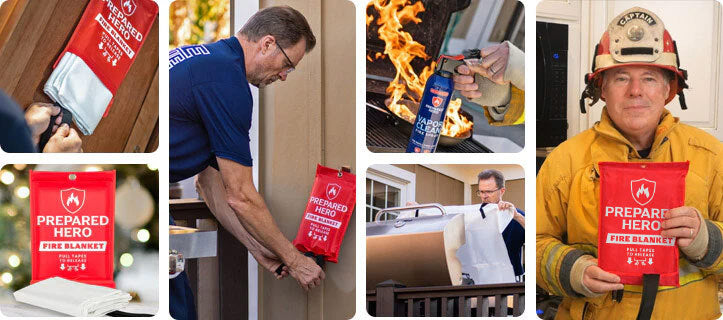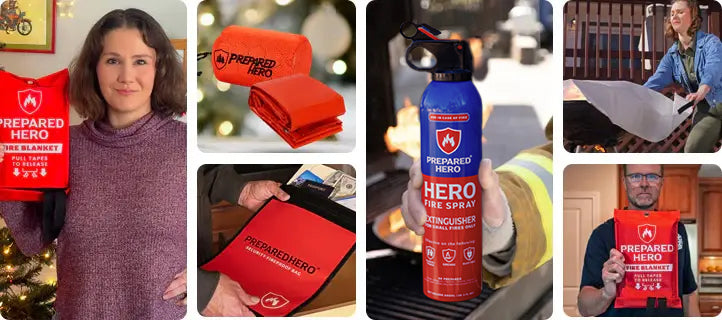Where you put your smoke detectors matters just as much as installing them. Proper placement makes sure they can detect...
According to the US Department of Transportation, 900 people die and about 76,000 people get injured in vehicle crashes during snowfalls or blizzards each year.
Blizzards may result in death and significant property damage. In some cases, they cause devastating and irreparable harm to American homes and communities.
Given this, you should know how to prepare for a blizzard. But how exactly can you prepare? Let's find out.
How to Prepare for a Blizzard
Thousands of Americans are killed or injured yearly by vehicle accidents on snowy roads and exposure to extreme cold.
Here's how you can prepare for a blizzard so you and your family stay safe:
1. Know the risks.

Is your city prepared for blizzards? How well do residents deal with winter weather?
These are just some of the questions you need to ask yourself. By asking these questions, you assess a blizzard's impact on your area.
For instance, if you live in rural areas where it becomes dangerous for buses to operate, prepare for school closures.
Blizzards can last from a few hours to a few days and pose many dangers to people and communities. Plus, the University Corporation for Atmospheric Research says that blizzards can cause whiteouts and lower visibility, making travel difficult or impossible.
In addition, cold temperatures feel even colder due to wind chills and strong winds. This puts you and your family at risk of hypothermia and frostbite outside.
Other risks associated with blizzards include the following:
- Power outages
- Collapsing roofs
- Vehicle accidents
- Freezing to death
Knowing how to prepare for a blizzard helps keep you and your family safe during and after a winter storm.
2. Create an emergency plan.

Next, create an emergency plan that you and your family know well. By educating family members, they'll know what to do when a blizzard hits.
An emergency plan involves thinking about how to communicate with each other. It also involves how to contact someone stranded in a vehicle outside. Lastly, your plan should include minor things like caring for pets if you're snowed in your house.
3. Stock up on essentials and emergency supplies.

When a blizzard hits, you'll most likely spend your time indoors. Since you'll not drive to the grocery store for a few days, you must stock up on essentials like food and water ahead of time.
Aside from food and water, you should also prepare an emergency kit to keep you warm and let you see in the dark.
Here are some of the things that you should prepare:
Hand Crank Radio
You should stay updated even when the power's down. A hand crank radio doesn't rely on electricity, so you can use it during a blackout.
Blankets
Extreme cold puts you and your family in danger. Make sure to prepare extra blankets to keep you warm.
Road Flares

Blizzards often lead to power outages that put your vehicle at risk. Place magnetic road flares on your car or driveway to prevent accidents.
Walkie Talkie

Prepare a backup if phone lines go down or your phone dies. The PowerTalkieX Radio Set lets you communicate through a three-mile distance and 25-floor buildings with a crisp voice and noise reduction tech.
Winter Poncho

Wear thick clothes and a winter poncho to prevent hypothermia whenever you need to go out.
Electric Lighter

Have a waterproof electric lighter for a backup fire source.
Security Alarm

Contrary to popular belief, security alarms aren't just for fighting thieves. You can use one to signal rescuers when you're stuck somewhere during a blizzard.
Survival Bag

If you're stuck and have to sleep in your car during a blizzard, the Prepared Hero Survival Bag will keep you warm and safe from strong wind and snow.
Can Opener
You'll likely have to live off of canned food, so keep a can opener in your emergency bag.
First Aid Kit
Have a first aid kit ready when someone in your family gets injured.
Non-Perishable Food and Water
Have a three-day supply of non-perishable food and water for each person and pet.
Medicine
Since pharmacies will likely close, stock up on over-the-counter (for headaches, stomachaches, and the like) and prescription (for chronic conditions) medicine.
4. Make a list of emergency contacts.

First, list down the contact numbers of the fire station, the police, the hospital, and other government offices that can help rescue you.
You should also have the contact numbers of your family, neighbors, and friends. It also pays to have the contact number of your power company in case a power outage occurs.
Once done, save these numbers on your phone and share them with your loved ones. Then, print copies and laminate them. Lastly, give one copy to each family member.
Doing so will make bringing your family to a safe place much easier.
5. Prepare your car.

Driving is not ideal during a blizzard, but it's necessary at certain times. Make sure your car is clear of ice if you drive during a blizzard. Drive slowly and let someone know where you're going.
Whether driving for emergency services or heading to an evacuation center, you must prepare your car before a blizzard.
Do the following to prepare your car for a blizzard:
- Keep your gas tank full.
- Put on snow chains or snow tires.
- Place an emergency kit in your vehicle.
Most importantly, drive with utmost caution during a blizzard.
6. Blizzard-proof your home.

The outside of your house will bear the harmful effects of a blizzard. To minimize damage, you must blizzard-proof your home.
Doing so will also help keep your family safer and warm inside. Additionally, it'll prevent you from paying for major repairs after the blizzard.
Do the following to protect your home from a blizzard:
- Apply weatherstripping to your windows and doors.
- Insulate your pipes.
- Clean your gutters.
- Install smoke detectors and carbon monoxide detectors.
- Have a fire extinguisher on hand.
7. Think about your pets.

Next, prepare a safe and comfortable place for your pets.
You must keep dogs and cats in cages with enough water and food. Their food and water should last for three days.
On the other hand, horses, chickens, pigs, and other livestock should be protected from ice, rain, and wind. They should be sheltered and have access to food and non-frozen water.
Lastly, install snow fences to decrease drifting snow on roads, which could block barns and sources of water.
Note: You can skip this part if you don't have any pets.
8. Reach out to family, friends, neighbors, and your employer.

Inform your family and friends about your whereabouts before a blizzard. This lets them locate you in case the blizzard gets you stuck.
Next, let your employer know that you can't go to work. While the news might reach them, it pays to inform them yourself.
Lastly, let your neighbors know that you're inside your house. When the authorities advise you to evacuate, you and your neighbors can go to the evacuation site together. Informing your neighbors of your whereabouts also ensures that nobody gets left behind.
9. Have backup lights and power sources.

According to the University of Winnipeg, blizzard power outages can last for days, so you must have backup power sources. Ideally, you and your family should be able to survive without electricity for at least three days.
Here are some backup lights and power sources you should have:
Flashlights and Lamps
Put some flashlights and LED lamps on your dining table for easy access.
Headlamps
Headlamps let you use your hands, so they're beneficial.
Battery Pack

Have a solar battery pack to charge your phone during a blizzard.
Generator
Invest in a generator, especially if you live in an area frequented by blizzards and power outages.
10. Know when to go to a shelter.

Be prepared to evacuate anytime. Know your route and destination by taking note of the nearest local emergency shelter.
If the power's out for an extended period or the weather's cold, text SHELTER + your ZIP code to 43362). After this, The Federal Emergency Management Agency (FEMA) will give you the locations of nearby shelters. You may also call 911 if any emergencies occur.
Frequently Asked Questions
What are 5 ways to prepare for a blizzard?
Here are 5 ways to prepare for a blizzard:
- Stock up on essentials and emergency supplies.
- Create an emergency plan.
- Prepare your car.
- Blizzard-proof your home.
- Have backup lights and power sources.
How do I prepare my home for a blizzard?
Prepare your home for a blizzard by doing the following:
- Apply weatherstripping to your windows and doors.
- Insulate your pipes.
- Clean your gutters.
- Install smoke detectors and carbon monoxide detectors.
- Have a fire extinguisher on hand.
What are 4 tips for surviving a blizzard?
Here are 4 tips for surviving a blizzard:
- Stay inside.
- Wear many layers of thick clothes.
- Turn on the heater as the blizzard approaches.
- Stay in a small, insulated room.
How do you prepare for a snow blizzard?
Prepare for a snow blizzard by doing the following:
- Know the risks.
- Create an emergency plan.
- Stock up on essentials and emergency supplies.
- Make a list of emergency contacts.
- Prepare your car.
- Blizzard-proof your home.
- Have backup lights and power sources.
Where is the safest place to be during a blizzard?
The safest place to be during a blizzard is indoors. Stay inside your house and off the road. Stop at a hotel or local shelter if you're driving when a blizzard hits.
Should you stay in your car during a blizzard?
Yes, you should stay in your car during a blizzard. You'll be quickly disoriented if you leave your vehicle because of the intense snow and wind. Run your car's motor for 10 minutes each hour for heat.
Conclusion

Preparedness is power. Keep yourself and your family safe when the next blizzard hits by knowing how to prepare for a blizzard.
Listen to weather reports carefully and take note of any blizzard warnings. Plus, don't forget to complete your emergency kit because it can save your life.
Go to Prepared Hero and shop for survival tools now!


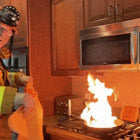 Fire
Fire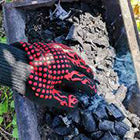 Safety
Safety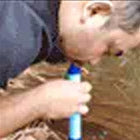 Survival
Survival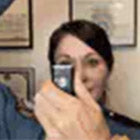 Protection
Protection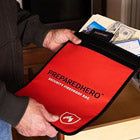 New
New
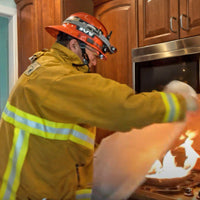 Fire
Fire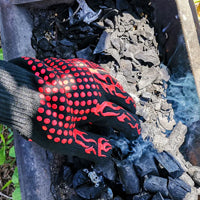 Safety
Safety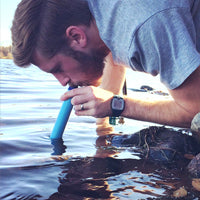 Survival
Survival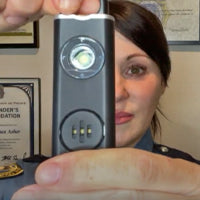 Protection
Protection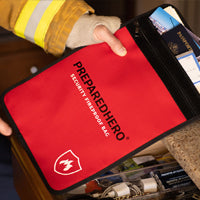 New
New
